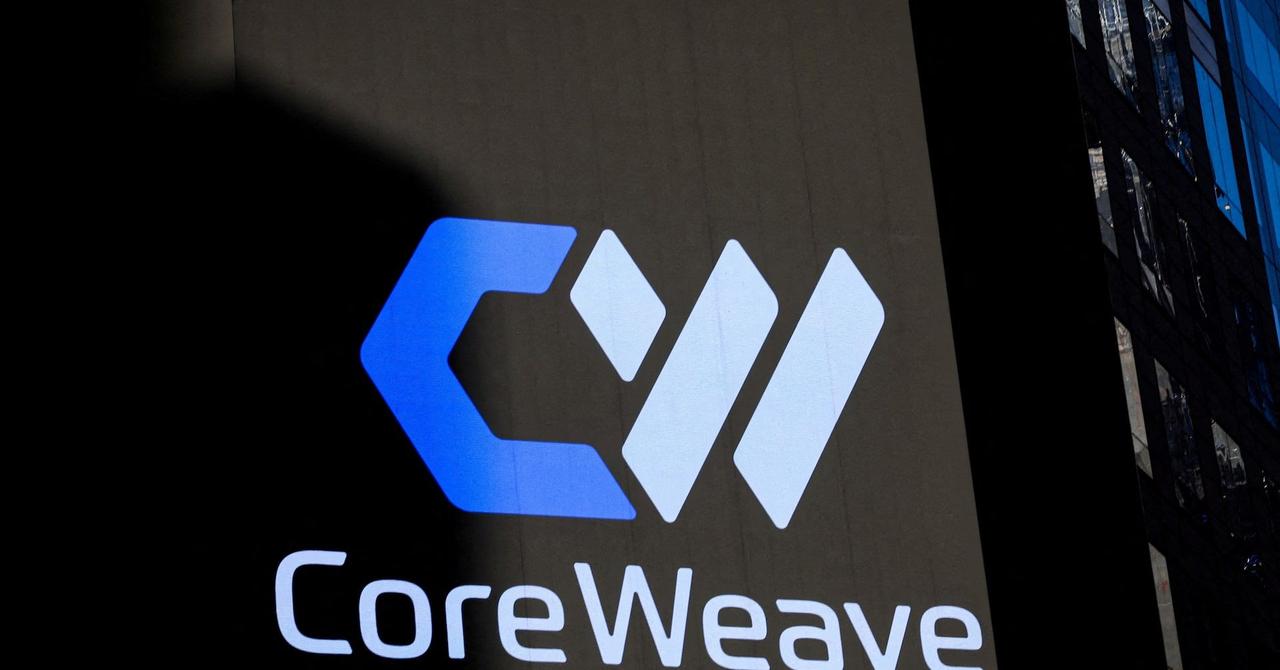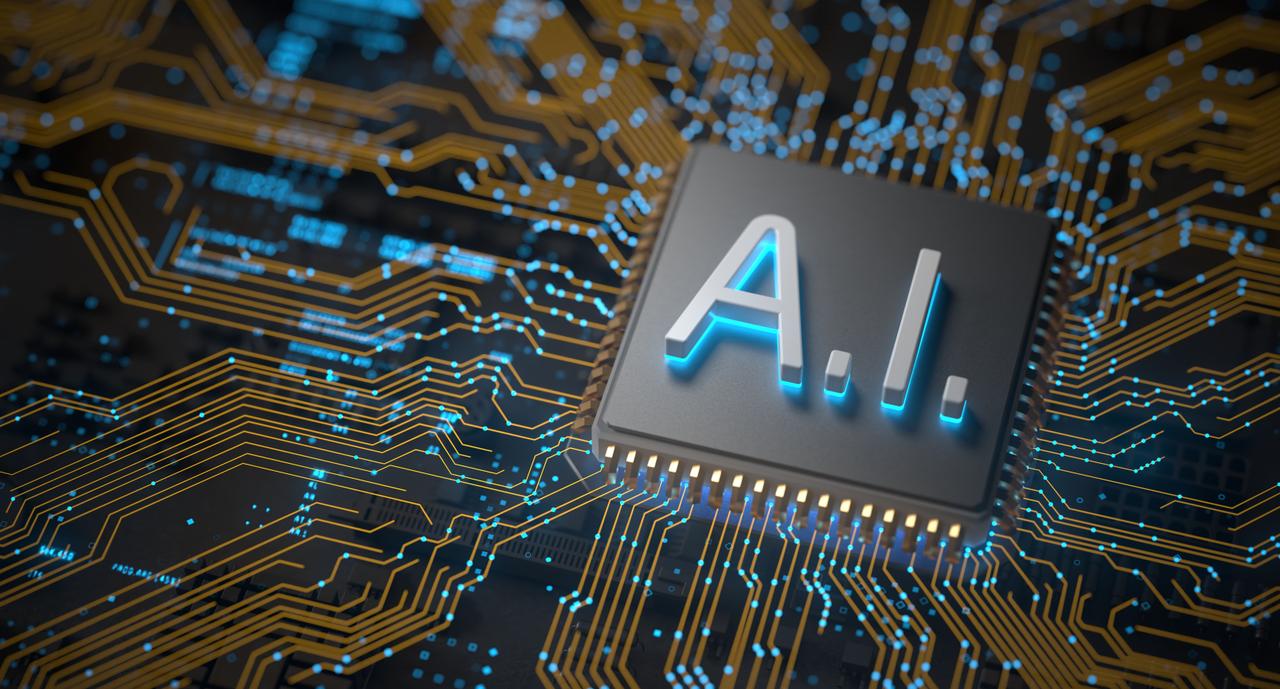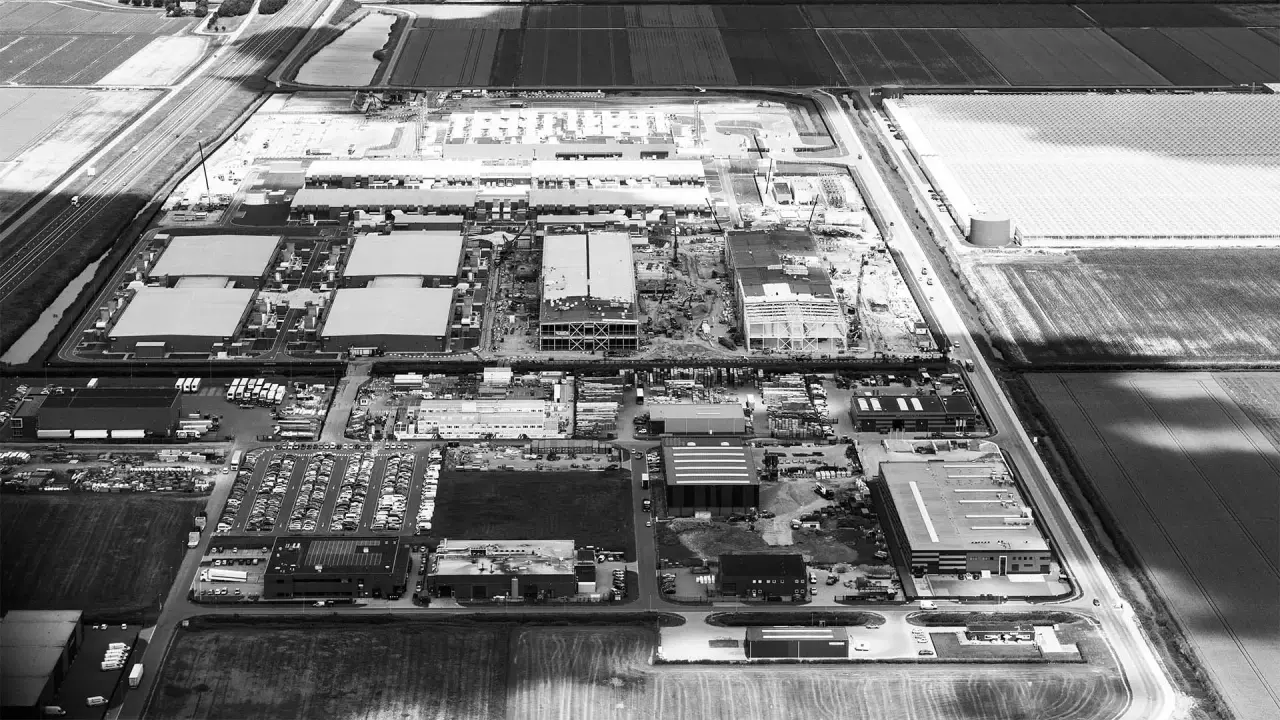CoreWeave Emerges as Key Player in Google-OpenAI Cloud Partnership
3 Sources
3 Sources
[1]
CoreWeave to offer compute capacity in Google's new cloud deal with OpenAI, sources say
June 11 (Reuters) - CoreWeave (CRWV.O), opens new tab has emerged as a winner in Google's newly signed partnership with OpenAI, sources familiar with the matter told Reuters, in the latest example of the voracious appetite for computing resources in the artificial-intelligence industry and the formation of new alliances to meet them. The so-called neocloud company, which sells cloud computing services built on Nvidia's (NVDA.O), opens new tab graphics processing units, is slated to provide computing capacity to Google's cloud unit, and Alphabet's (GOOGL.O), opens new tab Google will then sell that computing capacity to OpenAI to meet the growing demand for services like ChatGPT, the sources said. Google will also provide some of its own computing resources to OpenAI, added the sources, who requested anonymity to discuss private matters. The details of the arrangement, first reported by Reuters on Tuesday, highlight the evolving dynamics between hyperscalers like Amazon.com (AMZN.O), opens new tab, Microsoft (MSFT.O), opens new tab and Google and so-called neocloud companies like Coreweave. Hyperscalers are large cloud service providers that offer massive-scale data centers and cloud infrastructure. The insatiable hunger for computing resources has generated major investment commitments and turned rivals into partners. Backed by OpenAI and Nvidia, Coreweave signed up Google as a customer in the first quarter. CoreWeave, Google and OpenAI declined to comment. CoreWeave, a specialized cloud provider that went public in March, has already been a major supplier of OpenAI's infrastructure. It has signed a five-year contract worth $11.9 billion with OpenAI to provide dedicated computing capacity for OpenAI's model training and inference. OpenAI also took a $350 million equity stake in CoreWeave in March. This partnership was further expanded last month through an additional agreement worth up to $4 billion, extending through April 2029, underscoring OpenAI's escalating demand for high-performance computing resources. Industry insiders say adding Google Cloud as a new customer could help CoreWeave diversify its revenue sources, and having a credible partner with deep pockets like Google enables the startup to secure more favorable financing terms to support ambitious data center buildouts across the country. This could also boost Google's cloud unit, which generated $43 billion in sales last year, allowing it to capitalize on the growth of OpenAI, which is also one of its largest competitors in areas like search and chatbots. It positions Google as a neutral provider of computing resources in competition with peers such as Amazon and Microsoft. CoreWeave's deal with Google coincides with Microsoft's re-evaluation of its data center strategy, including withdrawing from certain data center leases. Microsoft, once Coreweave's largest customer, accounting for about 62% of its 2024 revenue, is also renegotiating with OpenAI to revise the terms of their multibillion-dollar investment, including the future equity stake it will hold in OpenAI. CoreWeave, backed by Nvidia, has established itself as a fast-rising provider of GPU-based cloud infrastructure in the AI wave. While its public debut in March was met with a lukewarm response due to concerns over its highly leveraged capital structure and shifting GPU demand, the company's stock has surged since its IPO price of $40 per share, gaining over 270% and reaching a record high of $166.63 in June. Reporting by Krystal Hu in New York and Kenrick Cai in San Francisco Editing by Matthew Lewis Our Standards: The Thomson Reuters Trust Principles., opens new tab Suggested Topics:Business Krystal Hu Thomson Reuters Krystal reports on venture capital and startups for Reuters. She covers Silicon Valley and beyond through the lens of money and characters, with a focus on growth-stage startups, tech investments and AI. She has previously covered M&A for Reuters, breaking stories on Trump's SPAC and Elon Musk's Twitter financing. Previously, she reported on Amazon for Yahoo Finance, and her investigation of the company's retail practice was cited by lawmakers in Congress. Krystal started a career in journalism by writing about tech and politics in China. She has a master's degree from New York University, and enjoys a scoop of Matcha ice cream as much as getting a scoop at work. Kenrick Cai Thomson Reuters Kenrick Cai is a correspondent for Reuters based in San Francisco. He covers Google, its parent company Alphabet and artificial intelligence. Cai joined Reuters in 2024. He previously worked at Forbes magazine, where he was a staff writer covering venture capital and startups. He received a Best in Business award from the Society for Advancing Business Editing and Writing in 2023. He is a graduate of Duke University.
[2]
CoreWeave to offer compute capacity in Google's new cloud deal with OpenAI
CoreWeave has secured a major partnership involving Google and OpenAI, supplying GPU-based cloud capacity to Google Cloud will then sell it to OpenAI to meet its rising AI demands. Backed by Nvidia and OpenAI, CoreWeave's stock has surged post-IPO, while the deal positions Google as a neutral AI infrastructure provider amid shifting industry alliances.CoreWeave has emerged as a winner in Google's newly signed partnership with OpenAI, sources familiar with the matter told Reuters, in the latest example of the voracious appetite for computing resources in the artificial-intelligence industry and the formation of new alliances to meet them. The so-called neocloud company, which sells cloud computing services built on Nvidia's graphics processing units, is slated to provide computing capacity to Google's cloud unit, and Alphabet's Google will then sell that computing capacity to OpenAI to meet the growing demand for services like ChatGPT, the sources said. Google will also provide some of its own computing resources to OpenAI, added the sources, who requested anonymity to discuss private matters. The details of the arrangement, first reported by Reuters on Tuesday, highlight the evolving dynamics between hyperscalers like Amazon.com, Microsoft and Google and so-called neocloud companies like Coreweave. Hyperscalers are large cloud service providers that offer massive-scale data centres and cloud infrastructure. The insatiable hunger for computing resources has generated major investment commitments and turned rivals into partners. Backed by OpenAI and Nvidia, Coreweave signed up Google as a customer in the first quarter. CoreWeave, Google and OpenAI declined to comment. CoreWeave, a specialized cloud provider that went public in March, has already been a major supplier of OpenAI's infrastructure. It has signed a five-year contract worth $11.9 billion with OpenAI to provide dedicated computing capacity for OpenAI's model training and inference. OpenAI also took a $350 million equity stake in CoreWeave in March. This partnership was further expanded last month through an additional agreement worth up to $4 billion, extending through April 2029, underscoring OpenAI's escalating demand for high-performance computing resources. Industry insiders say adding Google Cloud as a new customer could help CoreWeave diversify its revenue sources, and having a credible partner with deep pockets like Google enables the startup to secure more favorable financing terms to support ambitious data centre buildouts across the country. This could also boost Google's cloud unit, which generated $43 billion in sales last year, allowing it to capitalize on the growth of OpenAI, which is also one of its largest competitors in areas like search and chatbots. It positions Google as a neutral provider of computing resources in competition with peers such as Amazon and Microsoft. CoreWeave's deal with Google coincides with Microsoft's re-evaluation of its data centre strategy, including withdrawing from certain data centre leases. Microsoft, once Coreweave's largest customer, accounting for about 62% of its 2024 revenue, is also renegotiating with OpenAI to revise the terms of their multibillion-dollar investment, including the future equity stake it will hold in OpenAI. CoreWeave, backed by Nvidia, has established itself as a fast-rising provider of GPU-based cloud infrastructure in the AI wave. While its public debut in March was met with a lukewarm response due to concerns over its highly leveraged capital structure and shifting GPU demand, the company's stock has surged since its IPO price of $40 per share, gaining over 270% and reaching a record high of $166.63 in June.
[3]
This Monster Artificial Intelligence (AI) Data Center Stock Is the Real Winner From Google's Deal with OpenAI (Hint: It's Not Nvidia) | The Motley Fool
While Nvidia, Palantir Technologies, and Tesla consistently find their names in headlines regarding artificial intelligence (AI), I would argue that one company that dwarfs the attention garnered by big tech is OpenAI -- the start-up that kicked off the AI revolution in the first place. Recently, OpenAI sent shockwaves around the AI landscape yet again. This time, however, it wasn't because the ChatGPT developer released another groundbreaking product aimed at its rivals. Rather, investors learned that OpenAI is teaming up with ... Alphabet. Below, I'm going to detail why the partnership between OpenAI and Alphabet is such a big deal. Moreover, I'll break down which AI data center stock I think is poised to benefit most from this deal. Let's dig in. You may recall that when OpenAI emerged a few years ago, Microsoft was fast to partner with the company. More specifically, Microsoft plowed $10 billion into OpenAI as part of a strategic investment. One of the cornerstones of this deal was integrating ChatGPT into Microsoft's cloud platform, Azure. Throughout their partnership, OpenAI's compute infrastructure for training and inferencing was primarily supported by Microsoft. With Google entering the picture, however, those dynamics have changed. OpenAI is branching out beyond Microsoft and now leveraging the Google Cloud Platform (GCP) to complement Azure for compute resources. While this is a huge win for Alphabet's cloud business -- which rivals both Azure and Amazon Web Services (AWS) -- I see an even bigger winner emerging from this partnership. While Nvidia, Advanced Micro Devices, and Broadcom have been critical sources of high-performance chipsets for data centers throughout the AI revolution, a new player is emerging as a key resource in the space. CoreWeave (CRWV -1.00%) provides critical infrastructure services to AI developers through a cloud-based model. Companies that may not have the time or financial resources to acquire graphics processing units (GPU) from Nvidia and its peers can essentially rent them from CoreWeave's cloud-based infrastructure. Per the graph above, the 63% increase in CoreWeave's remaining performance obligations (RPO) suggests demand for infrastructure services is strong. However, there's a bit more to those figures above. Back in March, CoreWeave signed an $11.2 billion deal with (wait for it!)... OpenAI. Following the news of OpenAI's partnership with Google Cloud, further reporting outlined that CoreWeave is playing a role in this deal, too. CoreWeave is reportedly supplying compute power to Alphabet, which the company will then resell to OpenAI as part of the new cloud deal structure. As I outlined in this piece here, infrastructure services represent the next big tailwind along the AI spectrum. While OpenAI may continue to make the headlines as it inks new deals and further migrates from an overreliance on Microsoft, investors should keep a keen eye on how CoreWeave might also emerge as a subtle winner from these partnerships. Wall Street's consensus estimates for CoreWeave suggest an incredibly bullish outlook. It's rare for a company to triple its revenue and transition to profitability in a matter of just a couple of years. Now that CoreWeave is working closely with OpenAI, I suspect the company will become increasingly scrutinized as more AI infrastructure deals come to light. For these reasons, I think there is a lot riding on CoreWeave's ability to meet or exceed the forecasts below. While CoreWeave is a rising star in the AI realm and the company's outlook is bright, smart investors will recall that the company went public just a few months ago. Broadly speaking, IPO stocks can exhibit pronounced levels of momentum as hype around the new stock rises. With a stock price gain of nearly 300% in just two months, I think CoreWeave stock is overbought right now. Although I like the company as a long-term investment, I would encourage investors to exercise some patience and wait for a pullback before piling into the stock.
Share
Share
Copy Link
CoreWeave, a specialized cloud provider, is set to supply computing capacity to Google Cloud, which will then be sold to OpenAI, marking a significant shift in AI industry alliances and infrastructure provision.
CoreWeave's Strategic Position in AI Cloud Infrastructure
CoreWeave, a specialized cloud provider, has emerged as a key player in a newly formed partnership between Google and OpenAI. This arrangement marks a significant shift in the artificial intelligence (AI) industry's infrastructure landscape and highlights the growing demand for computing resources in AI development
1
.The Google-OpenAI-CoreWeave Triangle

Source: Reuters
Under this new agreement, CoreWeave will provide computing capacity to Google's cloud unit, which Google will then sell to OpenAI to meet the increasing demand for services like ChatGPT. This arrangement also includes Google supplying some of its own computing resources to OpenAI
1
. The deal underscores the evolving dynamics between major cloud providers (hyperscalers) like Amazon, Microsoft, and Google, and specialized 'neocloud' companies like CoreWeave2
.CoreWeave's Existing Partnerships and Growth
CoreWeave, which went public in March, has already established itself as a major supplier of OpenAI's infrastructure. The company has a five-year contract worth $11.9 billion with OpenAI to provide dedicated computing capacity for model training and inference. OpenAI also took a $350 million equity stake in CoreWeave in March
1
.Impact on Industry Dynamics

Source: Motley Fool
This partnership could help CoreWeave diversify its revenue sources and secure more favorable financing terms for data center expansions. For Google, it allows its cloud unit to capitalize on OpenAI's growth while positioning itself as a neutral provider of computing resources
1
.Market Performance and Future Outlook
Despite initial concerns over its leveraged capital structure and shifting GPU demand, CoreWeave's stock has surged since its IPO, gaining over 270% and reaching a record high of $166.63 in June
1
. Wall Street's consensus estimates for CoreWeave suggest a bullish outlook, with expectations of tripled revenue and a transition to profitability in the near future3
.Related Stories
Shifting Alliances in AI Infrastructure
The deal coincides with Microsoft's re-evaluation of its data center strategy and renegotiation of its investment terms with OpenAI. This shift in alliances underscores the dynamic nature of the AI infrastructure landscape and the strategic importance of partnerships in this rapidly evolving field
1
.Investor Considerations
While CoreWeave's outlook appears promising, investors should note that as a recent IPO, the stock may be subject to heightened volatility. The nearly 300% price gain in just two months suggests the stock might be overbought, and patience may be advisable for potential investors
3
.References
Summarized by
Navi
Related Stories
OpenAI Secures $11.9 Billion AI Infrastructure Deal with CoreWeave Ahead of IPO
11 Mar 2025•Business and Economy

CoreWeave Acquires Core Scientific in $9B Deal, Boosting AI Data Center Capacity
07 Jul 2025•Business and Economy

CoreWeave's $1.5B IPO: From Crypto Mining to AI Infrastructure Giant
28 Mar 2025•Business and Economy

Recent Highlights
1
Samsung unveils Galaxy S26 lineup with Privacy Display tech and expanded AI capabilities
Technology

2
Anthropic refuses Pentagon's ultimatum over AI use in mass surveillance and autonomous weapons
Policy and Regulation

3
AI models deploy nuclear weapons in 95% of war games, raising alarm over military use
Science and Research





